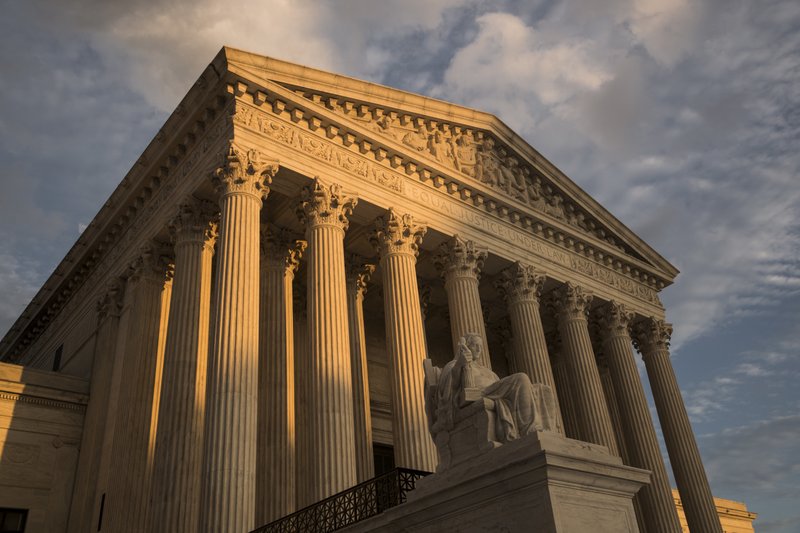
By: S. Joseph Scott
Was June 20, 2019, Supreme Court ruling on a cross-shaped Maryland war memorial a great victory for religious liberty? Maybe.
In 2014 the American Humanist Association filed a lawsuit alleging said cross, a WWI war memorial erected in 1925 by citizens of Prince George’s County, violates the Establishment Clause of the First Amendment because it resides on public land and is maintained by state funds.
Now I am no lawyer nor the son of a lawyer so I claim no expertise here. But, I have two eyes in my head and a moderate ability to read and understand the English language. And we all have the remarkable blessing of living in a country where the Highest Court openly publishes its work for all to see and evaluate. Few of us, however, take the time because their opinions wax long and tiresome. Most of us simply hear the Boos or Hoorays in the headlines. So in this case there is a chorus of hoorays for religious liberty. Put this one in the W column.
But, before we request the second piece of cake and garnish it with whipped cream, pause and read the fine print. In this layperson’s opinion, the real significance of the Court’s rulings in its cases is not simply in the decisions reached, but is embedded in the reasoning, the logic used to get there.
In the fine print.
And like those TV drug ads, the promise of great benefit is accompanied by a terrifyingly long list of life threatening side effects.
So first, the benefits. There are two. The first, is an eminently reasonable interpretation of what “establishment” means, as in the Establishment Clause, when it concerns government action. Justice Thomas observes, “‘[t]he mere presence of the monument along [respondents’] path involves no
[actual legal]
coercion,’ the sine qua non of an establishment of religion.” The heart of establishment is coercion. Is my religious arm being twisted in an unwanted direction by some government action? That is the sharp point of the legal question in establishment cases according to Justice Thomas.
It is hardly an act of government coercion to maintain a public war memorial, even one that contains religious symbolism. This is a W for the protection of unreasonable federal intervention in the lives of local citizens. Hopefully it will also serve as a deterrent against the religious zeal of secular humanists from an iconoclastic effort to purge our public spaces. Cue the Hooray from all who perceive a W for religious liberty!
The second benefit is hidden in this statement: “The American Humanist Association claims that its members come into regular, unwelcome contact with the Bladensburg Cross when they drive through the area,” no doubt true. But in the opinion of the majority in a 7-2 vote, “this ‘offended observer’ theory of standing has no basis in law.”
Double down on hooray for that last clause!
Bear with me. “Standing” in my simple understanding means if I want to sue you I better be ready to demonstrate that I have really been hurt. I cannot sue someone because I think their dog might bite, I have to show the teeth marks and prove whose dog it is. The “offended observer” theory is “micro-aggression theory” dressed up in its Sunday best on its way to Washington; i.e. anything I find offensive is seen to be a dangerous form of oppression and the solution must be to hire the AHA litigators. After all, I have a right to live my life offended by no one and nothing. Hmmm.
So applied here it means I find your symbol offensive when I drive past it at 35 m.p.h. and that really does psychological or emotional harm to me. After all I nearly drove off the road last time I passed it. Ok, I was texting and checking twitter at the same time, but my feelings were hurt too! I have a legal right to file suit. The court said, nope. It took a Supreme Court case to finally help us see that being offended is not a sufficient basis for a federal lawsuit!
This is not only a W but a blow out, a shutout, a supreme court smackdown of legal whining. The justices are saying, enough already. One cannot claim that by simply observing a symbol I suffer such harm that I have a legal rightto bring a lawsuit to tear it down. Deal with it. Grow up. In a pluralistic society persuasion is the preferred remedy not litigation. Our courts have real matters of injustice to address.
The long term impact here is likely the overturning of previous precedent that allowed for “offended observers” to clog the courts. So, I will start by saying hooray for sanity and welcome to pluralism. We can all celebrate this Fourth of July. Go be offended by someone with whom you disagree and thank God for freedom from real government coercion that makes it possible.
But, before the fireworks, stay tuned for the dangerous side effects to follow in my next post.
S. Joseph Scott has a Ph.D. in theology and has served in leadership positions in both higher education and religious institutions. He has published in both academic and popular journals and has a special interest in the intersection of faith and culture.








